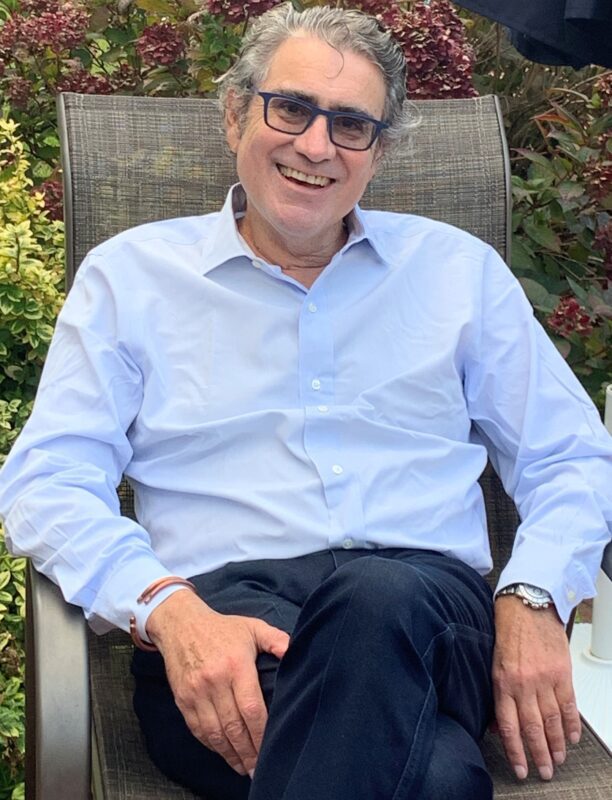Mark Goldwasser, CEO of Ceros Financial Services
With about $117 million in transactions by the end of 2021, Ceros Financial Services is building an investment banking platform focused on fundraising for early-stage medical technology and medical device companies. Medical Device News Magazine spoke with CEO Mark Goldwasser about the potential of the medtech sector, companies that Ceros has funded so far, and what he sees ahead.
MDNM: What is the background of Ceros Financial Services?
Mark Goldwasser: My partner, Chris Dewey, and I met at Bear Stearns in 1985. We both have more than 40 years of experience on Wall Street and a 20-year track record investing in venture robotics and robotic surgery. In 2001, we launched Robotic Ventures, the first venture fund focused on robotics. We invested in iRobot and Z-Kat, Inc., the precursor to Mako Surgical. Our early medical robotics investments included Mako, the first company to develop and commercialize 3D-printed implants, which was later acquired by Stryker Corp. We also raised capital for Cephea, which was sold to Abbott Laboratories.
In 2019, Chris and I, along with our partner David Brown, acquired Ceros Financial Services, which provides mutual funds and other services to financial advisors. Our goal with Ceros Capital Markets is to build on the mutual fund business with a premier, boutique investment banking platform to fund early-stage stage, disruptive medical technology and medical device companies.
MDNM: How much have you raised this year for medical technology start-ups?
Mark Goldwasser: By the end of 2021, Ceros will have raised about $117 million for emerging medtech companies, in the US and globally. Since inception in 2020 and by the end of year, we will have transacted about $145 million focused on the medtech sector.
MDNM: How much are you targeting to raise going forward? Elaborate on this point.
Mark Goldwasser: Our original fundraising target for 2021 was $100 million, and we exceeded it this year. Going forward in 2022, we are targeting to raise about another $150 million for medical technology startups. Funding could be for new companies, and for some of our current companies that may have additional raises next year.
MDNM: What are some of the companies that Ceros has funded?
Mark Goldwasser: Earlier this year, we co-led a $96 million financing round for Memic Innovative Surgery to support the commercialization of Memic’s Hominis® robotic-assisted platform, revolutionary technology that features miniature humanoid-shaped robotic arms designed to replicate a surgeon’s movements. Memic’s Hominis system has received De Novo marketing authorization from the U.S. Food and Drug Administration and is currently being applied for non-invasive hysterectomies. Memic announced in August that it has entered into a merger agreement with a SPAC, MedTech Acquisition Corp., to become a public company.
We have also transacted in OrthoSensor, which has developed a sensor-assisted device that provides real-time data to surgeons for post-operative care following knee surgery. Othe Ceros investments are Dermasensor, which designs non-invasive tools that use machine learning and spectroscopy to evaluate skin lesions for cancer, and Insightec, which uses guided focused ultrasound equipment for non-invasive brain surgery.
In November, we announced a placement for Aquyre Biosciences, which has developed a disruptive medical diagnostic platform for on-site assessment of tissue biopsies for conditions such as cancer. With Aquyre’s cellular imaging technology, the process from live tissue to data and digital image for review by the medical expert takes about two minutes, while the patient is still in the procedure suite, rather than several days.
MDNM: Why are you focusing on emerging medical technology and medical device companies?
Mark Goldwasser: We believe that Covid has greatly accelerated the trend toward digital medicine and that there is enormous potential in the sector. The pandemic has made patients comfortable with virtual access to their doctors and medical professionals. Patients want non-invasive procedures that don’t involve a hospital stay unless absolutely necessary, with less discomfort and quicker recovery times. Medical technology holds tremendous promise and there is not a lot of competition in the sector from a funding standpoint. We also like medtech and medical devices, rather than biotech, because typically there is a shorter runway to approval and commercialization. Biotech usually involves a lengthy clinical trial process and a much longer time horizon to market.
MDNM: What are some of the characteristics of start-ups that you’ll consider for funding?
Mark Goldwasser: We generally focus on medical device and medical diagnostic companies that we believe are disruptive. We like companies that we think have innovative and viable technology to transform medical procedures, especially those for non-invasive procedures.
MDNM: What is your outlook for the medical technology sector and how it will reshape the healthcare medical community?
Mark Goldwasser: The outlook for the medtech sector is extremely bright in a post-Covid world. Medical technology offers limitless and extraordinary potential going forward. We think it will reshape the healthcare medical community by streamlining diagnostics and procedures in ways we can’t even imagine yet, dramatically saving time and costs and enhancing outcomes for both doctors and patients.
